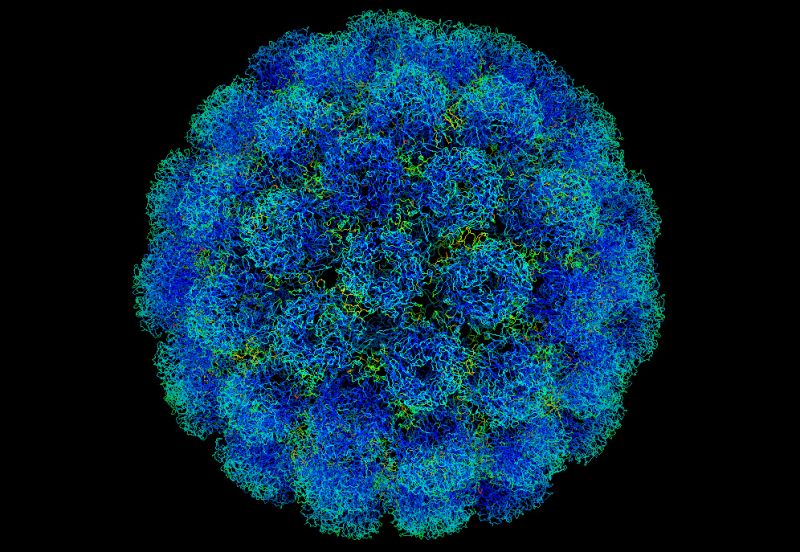01/03/2016
Print PageDKTK Essen/Düsseldorf: Dangerous Merkel cell skin carcinoma exposed

Merkel cell carcinoma (MCC) is one of the most dangerous skin cancer types because of its ability to grow and frequently metastasize. Around a third of patients diagnosed with MCC will die from the disease. Up to now, this type of skin cancer was relatively rare and affected mainly those patients over 70 years old. But for some years now, it has started to occur more often in the younger population.
The disease is caused by an infection with the Merkel cell polyomavirus. Most viruses including those that trigger cancer, provoke violent immune responses aimed at destroying the infected cells. The Merkel cell carcinoma cells however remain unaffected.
The DKTK scientists at the Essen partner location have now uncovered how Merkel cell carcinoma manage to evade destruction by the immune system, and how to lift their camouflage. The tumor uses so-called epigenetic mechanisms to silence relevant genes of the immune system. Jürgen Becker is the head of the DKTK working group for translational cancer research at the University Hospital in Essen. He explains that 'normally, a viral infection and the conversion into a malignant tumor cell would signal danger and thus activate defense cells. In the re-programmed cancer cells however, the virus removes the histone acetylation process and thus turns off various immune genes. This phenomenon is also known as epigenetic silencing.'
Histones are spherical proteins that wrap our DNA into chromosomes. If the histones are labeled with acetyl groups, this will signal the cell to read the DNA. In Merkel cell carcinoma, the acetyl groups are removed. This in turn switches off a gene of the immune defense that encodes a crucial stress molecule. As a result, the cells of the immune defense, so called T-cells, no longer recognize the tumor and fail to attack.
The scientists from Essen have now succeeded in making the tumor susceptible to the immune response again. They use inhibitors to block the histone deacetylase, which is the key enzyme responsible for the inactivation. As a result, the signal genes are reactivated and can be read again. The scientists were able to show in cell cultures that the treated tumor cells were consequently attacked by specialized T-cells and destroyed.
'We already knew that epigenetic silencing plays a role in cancer. But we were surprised at how central this mechanism is to the escape of the tumor cells', explains Cathrin Ritter, who did this work as part of her thesis at the DKTK. She will probably also be part of the next steps towards clinical trials.
The research team has every reason to be optimistic as this work is extremely interesting for the current immune therapeutics that big pharmaceutical companies are developing. These are based on improving the patients' immune responses. In some patients however, this approach is unsuccessful because the tumor is not even recognized as such. Jürgen Becker is confident that this may change: 'We have managed to show that the epigenetic inactivation of genes is an important camouflage mechanism in Merkel cell carcinoma, and that we can reverse it. We therefore see a good chance to combine current therapies with our results.'
The cooperation within the DKTK alliance has been an important source of inspiration for him. 'As a dermatologist I always have the clinical application in mind. Through networking with basic researchers at the DKTK, I have discovered completely new details that open up new avenues for therapy.'
Ritter C, Fan K, Paulson KG, Nghiem P, Schrama D, Becker JC. Reversal of epigenetic silencing of MHC class I chain-related protein A and B improves immune recognition of Merkel cell carcinoma. Scientific Reports 2016, DOI:10.1038/srep21678